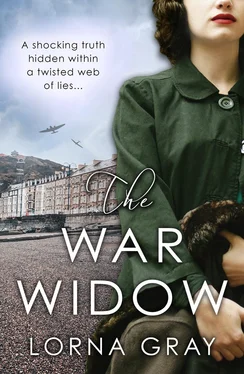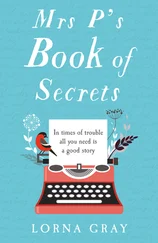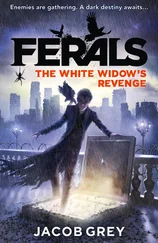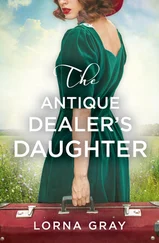I sketched in the turn of the river as it snaked across the floodplain to disappear behind Jim’s shoulder. That done, I was lucky enough to discover that I still had some water in the very stale flask that lurked in the bottom of my bag. Tipping a few drops into its metal cap, I began to add the little hints of watercolour here and there which would bring my painting to life. No one would notice that this whole piece was composed just so that I could make a sly portrait of the man in the foreground.
“Are you painting?” Mary suddenly reappeared and threw herself down beside me. “May I see?”
She took the sketchbook with her customary self-assurance and leafed interestedly through the pages. She paused here and there to ask a question about the subject or scene and it was very sweet how she took care not to smudge the drying paint.
“Who’s he?” She wasn’t looking at my cunningly signed and dated record of Jim’s presence. I saw with a jolt that she had discovered the sheaves of paper that I kept as little treasures inside the cover.
“Rhys,” I said, carefully scrutinising her face for her reaction. “My husband.”
“Your husband? ”
“Ex,” I clarified. Her reaction was reassuring. He meant nothing to her, except more idle intrigue.
“Oh,” she said softly, examining the vivid green eyes as they stared insolently back at her. It had been a good likeness; in those days my figure work had emulated the flowing energy of those portraits by El Greco whose subjects seem to be perpetually in motion. This quick study of my husband’s face had captured his expressive good looks with the dramatic lighting that had been my specialism. Rhys had always claimed that the intense shadows made him look sulky. If the cap fits , I had later thought, but not dared say it.
Mary asked, “When was that? Your divorce, I mean.”
“We divorced last year. That portrait is from ten years before that – the year we were married.”
“Oh,” she said again, reading the pathetically soppy inscription that recorded the date: 12 June ’36. “Is that how you met? Through painting?”
“It was,” I confirmed. This at least was a relatively painless piece of my past. I had been a freshly arrived young student working under my uncle. There was no embarrassment in remembering the crucial first exhibition I’d helped the old man hang and how it had also been my first introduction to his fearsomely precise photographer friend. I’d thought Rhys was the most inspiring man I’d ever met. He’d liked me too. He’d liked my youthful enthusiasm for his old friend’s small Cirencester gallery and my optimism allied with the fact that, as a student of art, I was almost as passionate about the scope of Rhys’s work as he was.
Mary was examining his face a little more closely, perhaps reading the traces of the rise and fall of my marriage in the uneven brush strokes. Then she returned the wad to its home and handed the sketchbook back. “We thought you were a spinster. You’re so self-contained.”
That made me smile. “No.”
We sat for a while in a companionable silence, her contemplating the view, me finishing my painting, before, with a sigh, Mary abruptly twisted in her seat to draw her feet up onto the broad stonework and began fiddling with a bracelet. I painted for a while longer but then she sighed again, more loudly, and I realised what she wanted.
“Is something the matter?” I finally asked, just as I was supposed to do. She was staring at the metal band that encircled her wrist and her face had set into an unusually serious frown that was somehow very endearing.
She said abruptly, “It’s irresponsible, don’t you think?”
“What is?”
“The fuss they’ve been making about the Royal Wedding. They’re deliberately bombarding us with the fairytale of being a princess and being swept off one’s feet by a beau and it’s unachievable.”
I couldn’t help smiling. “But the bride in question is a princess.”
“Don’t laugh; it’s true. It sets an unobtainable standard and gives rise to all sorts of pressures and expectations. And they keep making such a big statement out of the fact the poor woman has had to hoard her clothing coupons like the rest of us as if that’s a good thing. I’m so heartily sick of having to make-do-and-mend.”
I caught a brief fluttering glance beneath those elegant lashes. It made me say blandly, “Well at least if you wanted to escape all the fuss, I suppose you’ve come to the right place.”
I saw her blink at me incredulously and then blink again. “Are you being serious? You are being serious.” She laughed. “Haven’t you noticed that the town is overflowing with people and events and tea dances? It’s November: the town should be battened down for the closed season and instead all the usual summer entertainments are out in force. It’s like that tale of the swallow that stayed for winter or something. They’ve got the funicular running up and down the hill for heaven’s sake and I should know because it was the only activity remotely pertaining to a holiday that I managed to do yesterday.”
I stared at her blankly. I really hadn’t noticed.
She continued, “It all makes a bit more sense now that I know you were married. Your independence, I mean. We had wondered if you were a real oddity; you know, one of those aggressively intellectual women who purse their lips and forge their own path come what may and are destined ultimately to decay into irritating habits and dressing in frills for dinner like the Miss Bartlemans.”
Something unguarded in me made me say rather dryly, “I’m flattered that you think I’m an intellectual.”
I’d surprised her. Obviously she didn’t expect me to react at all. She blinked at me and drew her coat more closely around her waist. There was a chill in the light breeze here. Having secured her coat with its belt, she then returned her attention to the heavy bracelet around her wrist. I saw the corners of her lips curve. “I suppose it’s natural that you wouldn’t feel the burden of being in a nation obsessed by a wedding. You’ve done your stint in acting the part of a romantic. You’re free to be alone now and no one can judge you for it.”
I had to raise my eyebrows at that. She cast a sly sideways glance at me and grinned.
“All right, everyone gets judged. All the time. But it’s not the same, you know it’s not. A few years ago I drove ambulances – at least I did when the old drivers let me which wasn’t all that often – and looked glamorous while I did it and everyone said it was a jolly good thing because we were keeping the image of the merry English Rose alive so that the troops had something to dream of while they were laying down their lives to defend us. Now the men have come home again and it’s important we still keep hauling out our tired old glamour even if it is all getting rather worn and thin, because now our job is to be swept away by marriage like the blushing females they dreamed of.”
Конец ознакомительного фрагмента.
Текст предоставлен ООО «ЛитРес».
Прочитайте эту книгу целиком, купив полную легальную версию на ЛитРес.
Безопасно оплатить книгу можно банковской картой Visa, MasterCard, Maestro, со счета мобильного телефона, с платежного терминала, в салоне МТС или Связной, через PayPal, WebMoney, Яндекс.Деньги, QIWI Кошелек, бонусными картами или другим удобным Вам способом.












